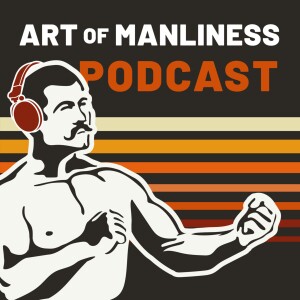Running is a gloriously democratic and accessible sport. All you need is a pair of shoes and the will to start moving your legs. It's so seemingly simple, that you may never think to figure out how you might get better at it — you just follow what your peers may be doing (who may not know anything more than you do), or pick up tips that percolate through social media (which may not be accurate), or 100% wing it, just vaguely trying to get a little faster each time you run.
My guest says that, rather than taking a willy-nilly approach to your recreational running, you can greatly improve your performance by learning from the professionals who actually run for a living.
His name is Matt Fitzgerald and he's a sports writer, a running coach, and the co-author of Run Like a Pro (Even If You're Slow): Elite Tools and Tips for Runners at Every Level. Today on the show Matt translates the best practices of elite runners into tactics the amateur can incorporate into their training, beginning with why you need to follow a well-programmed running plan, how to find the sweet spot for your running volume — including why you actually should concentrate more on the amount of time you run rather than the miles — and the number of hours Matt recommends trying to work up to running each week if you'd like to really see what you can do as a runner. We then discuss the ratio of low intensity to high intensity workouts you should be doing, the surprisingly small emphasis pros put on running form, what the pros know about what works best for recovery, and the edge you can get through cross-training. We end our conversation with the difference in mindset that marks elite runners, including how they're probably better quitters than you are.
Resources Related to the Podcast- AoM Podcast #202: Matt's previous appearance on the show to talk about How Bad Do You Want It?
- Ventilatory threshold
- Ben Rosario, co-author of Run Like a Pro (Even If You're Slow)
- AoM Podcast #266: The Myths and Truths of Distance Running
- AoM Podcast #382: How to Lift More, Run Faster, and Endure Longer
- AoM Article: Beginner's Guide to Long-Distance Running
- AoM Article: Bulletproof Ways to Prevent Running Injuries
- Matt's personal website
- Matt's business website: 80/20 Endurance
More Episodes
Generations — The Surprising Truths and Persistent Myths
 2023-04-26
2023-04-26
Toastmasters, Aristotle, and the Essential Art of Rhetoric
 2023-04-24
2023-04-24
The Wisdom of Psychopaths
 2023-04-19
2023-04-19
The Science of a Better Daily Routine
 2023-04-17
2023-04-17
The Golden Rules of Success
 2023-04-12
2023-04-12
What the World of Psychology Gets Wrong About Men
 2023-04-10
2023-04-10
The Essential Habits for Becoming an Agile, Vital, and Durable Human Being
 2023-04-05
2023-04-05
How to Deal With the Worry of Waiting
 2023-04-03
2023-04-03
The Naturalist’s Art of Animal Encounters
 2023-03-29
2023-03-29
The Power of Keeping Your Mouth Shut in a World That Won’t Stop Talking
 2023-03-27
2023-03-27
A Kantian Guide to Life
 2023-03-22
2023-03-22
Finally Follow Through
 2023-03-20
2023-03-20
Bat Bombs, Truth Serums, and the Masterminds of WWII Secret Warfare
 2023-03-15
2023-03-15
Anxiety Is a Habit — Here's How to Break It
 2023-03-13
2023-03-13
The Fitness Supplements That Actually Work
 2023-03-08
2023-03-08
The Essential Framework for Understanding The Art of War
 2023-03-06
2023-03-06
Why You Like the Music You Do
 2023-03-01
2023-03-01
Authority Is More Important Than Social Skills
 2023-02-27
2023-02-27
Throw a 2-Hour Cocktail Party That Can Change Your Life
 2023-02-22
2023-02-22
The Myths of Trauma
 2023-02-20
2023-02-20
Create your
podcast in
minutes
- Full-featured podcast site
- Unlimited storage and bandwidth
- Comprehensive podcast stats
- Distribute to Apple Podcasts, Spotify, and more
- Make money with your podcast
It is Free

- Privacy Policy
- Cookie Policy
- Terms of Use
- Consent Preferences
- Copyright © 2015-2024 Podbean.com



 iOS
iOS Android
Android